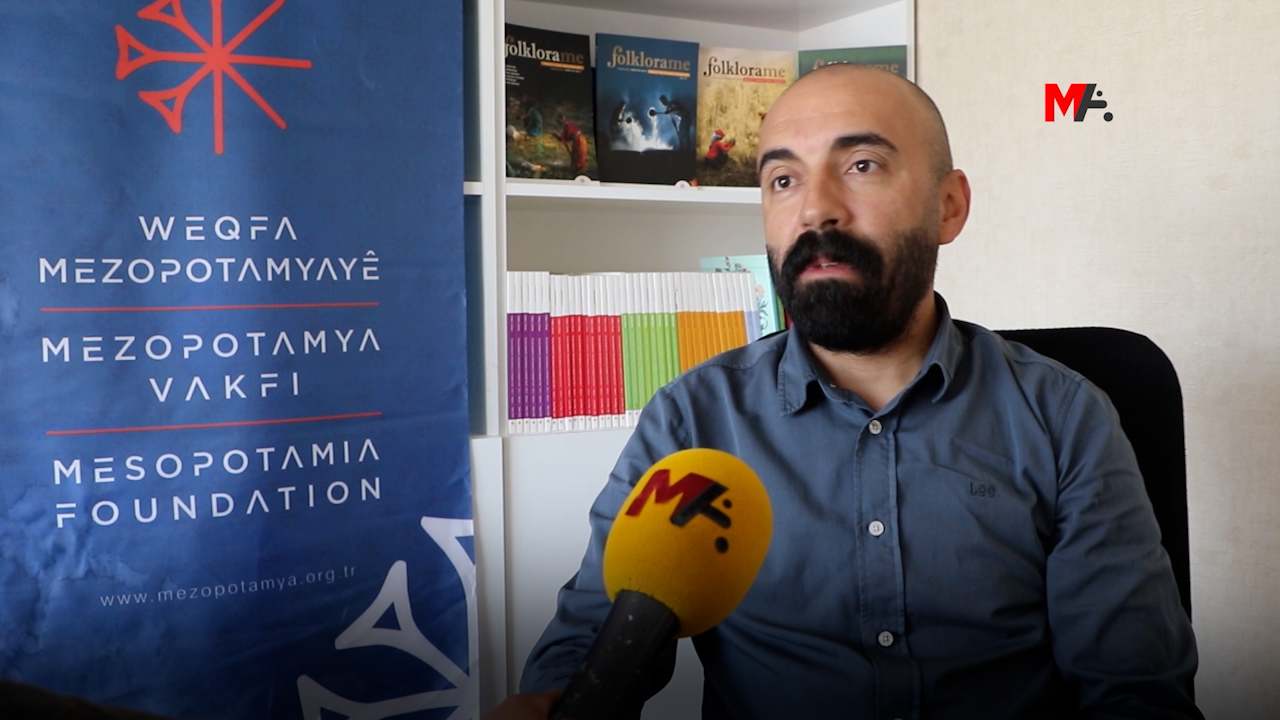Mesopotamia Foundation has worked for a decade with Kurdish speakers in Turkey, Syria, Iraq and Iran to revitalise the language and folklore. It aims to develop a multilingual university where students can learn in their mother tongue, primarily Kurdish. On Kurdish Language Day, Board Member Bahoz Baran presents the foundation’s achievements to date.
Mesopotamia Foundation celebrated Kurdish Language Day on 15 May at a keynote reception held to showcase a decade of achievements in revitalising the Kurd’s mother tongue, recording folklore, and improving access to resources and education centres. Bahoz Baran, a board member, outlined the foundation’s mission in an interview with Mezopotamya Agency.
Located in Diyarbakir (Amed), Turkey’s largest Kurdish-majority city, the NGO was founded in 2013 to safeguard endangered Kurdish dialects and establish a multilingual university where students can learn and express themselves in their mother tongue, primarily Kurdish.
The foundation works collectively with Kurdish speakers from Turkey, Syria, Iraq and Iran in the language and folklore studies. It aims to preserve the rich cultural heritage of the Kurdish people by transcribing oral stories from the community, Bahoz said.
The board member highlighted the publication of two magazines by the foundation, ‘Folklore and Language’ and ‘Our Folklore’, books on Kurdish orthography, dictionaries, and children’s stories. In addition, he said the foundation has organised a raft of panels and seminars on folklore terminology, oral culture and the standardisation of language. Kurdish terminology in areas such as law, education and medicine, has also been expanded.
Kurdish Language Day has been marked on 15 May since 2006. In 1932, on the same date, the Kurdish magazine ‘Hawer’ was first published in the Latin alphabet. This development is considered key to the history of the Kurdish language.
“Hawar is the voice of knowledge. Knowledge leads to personal reflection. A person who becomes aware of the inner self desires freedom and happiness. Self-knowledge also leads to self-expression. This magazine will reflect those expressions in the Kurdish language,” Celadet Eli Bedirxan, the magazine’s publisher, said.
The Kurdish language is the second most commonly spoken language in Turkey but has come under heavy repression since the establishment of the Turkish Republic in 1923. Prohibitions against the use of Kurdish in Turkey go back many years. Kurdish language, clothing, folklore and names had been banned since 1937. The words ‘Kurd’, ‘Kurdistan’ and ‘Kurdish’ were among those officially prohibited. After the military coup in 1980, speaking Kurdish was officially forbidden, even in private life.
Prohibitions on the Kurdish language in Turkey are part of the state’s broader denial of the Kurdish identity, also described as a cultural genocide. Turkish Minister of National Education Yusuf Tekin recently announced that only 10 language teachers were Kurdish out of 20,000 new appointments.

